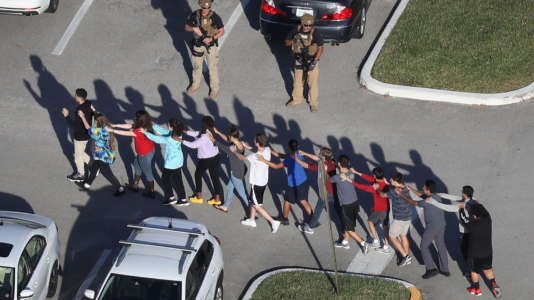
It was March 1999, and I had taken a part-time reporter job at the Columbine Community Courier, a weekly paper in Littleton, Colorado. Before working for the paper on a regular basis, I went off with my family on a long planned mission trip to Honduras. There we worked on a few projects, then did some sightseeing.
In Copan, we stopped at a Catholic Church during Mass. The church was packed, and we found out why before long. The priest spoke, and he was absolutely furious with his flock. A woman in our party, who was a Spanish-speaker, translated for us: some of the young men of Copan had come into the town square the night before, during a festival, shot it up, and killed a few people.
The priest yelled a question at the congregation: “Why are you people not watching your sons?”
That moment stuck with me as we came back to Colorado, and I wrote the story of our trip for publication. I proceeded to cover small stories in the community, such as the dedication of a new playground at an elementary school.
A week or so later, I was driving home from a dentist appointment when I passed Columbine High School. Just south of the school, I saw two young men, dressed in black dusters, walking toward Columbine. They looked into each other’s faces, then strode up the sidewalk with smiles and knowing looks. Little did I know I was watching two of the sons in my community who were about to become murderers. I remember feeling the presence of evil, and I prayed briefly, but I did not know what else to do. (Since that time, I have learned that many other people in the community had similar experiences.)
On April 20, 1999, the two young men I saw murdered 12 students and one teacher, then killed themselves at Columbine High School.
I covered the tragedy and its aftermath for the immediate community for about one year. Of course, it was a time of grief and trauma, and we all had to go through that and through the process of healing. In the midst of it, I believe there was a window of time where we could really learn and pass along what could be done to stop such a thing from happening in another community down the line.
Unfortunately, the mainstream media and the politicians came in and hyped the gun issue, just as they’ve done after every one of the tragedies that has followed Columbine. We all got focused on changing the laws that control guns. Family members of victims went to Washington, D.C. and were displayed by our president, just as family members of new victims are being displayed by a president now. We had a Million Mom March in Denver. We debated closing the gun show “loophole.” Laws were changed.
We also focused on fixing Columbine High School and on building a memorial for those we lost. Some of us focused on blaming one person after another for the loss and trying to make them pay. That went on for months and months.
Our focus on these things did not help other communities avoid similar tragedies.
So what should we tell other communities now? Engage! Watch your sons.
Really, think about who is shooting in our schools; think about who is killing innocents in Chicago; think about who walked into a theater in Aurora and murdered people.
How do we watch our sons? Be parents. Be communities. Get children more of what children need in their communities; connect them in their daily lives with more than one adult. The Search Institute of Minnesota has created a program called the “40 Developmental Assets for Adolescents,” which people in Columbine discovered after the shooting there. Through it, communities can touch our sons’ lives and watch them as they grow up and see if something is wrong.
Secondly, we must then get our sons help when they need it – and the help must be effective.
According to Dr. Keith Ablow, a forensic psychiatrist, “What all this gun legislation, restricting firearms or increasing background checks, fails to address is the real problem, which is untreated mental illness, and a mental health care system that is completely severed from anything like an ability to deliver outpatient services on an as-needed basis, sometimes involuntarily. So, we’ve allowed our mental health care system to become decrepit; people are falling through gaping holes in the system. It really has nothing to do with guns, as we just saw in the mass stabbing in Texas and as we should have learned in 1927 when 38 children were killed with homemade explosives at a school. This whole debate should be filibustered right off the Senate floor; people shouldn’t show up for this debate because it’s just a sideshow.”
We can fix the mental health system and create effective pathways by which people in a community can report a boy or young man who seems mentally ill and dangerous.
Students proved this can work after Columbine when survivors of that shooting and their peers around the country started saying something about teens who showed warning signs of being troubled and dangerous. They stopped some planned attacks.
Third, we need to change the way we educate our children in high school. Something about the model we have is causing our sons terrible pain. My own son experienced it in a normal, everyday suburban high school. I know that some of the agony is caused simply by the way adolescents are and how they develop. However, we really should examine our education system to see if there is something we can do to make high school safe emotionally as well as physically.
And finally, this thought: we must pray for our sons.
Source: American Thinker
